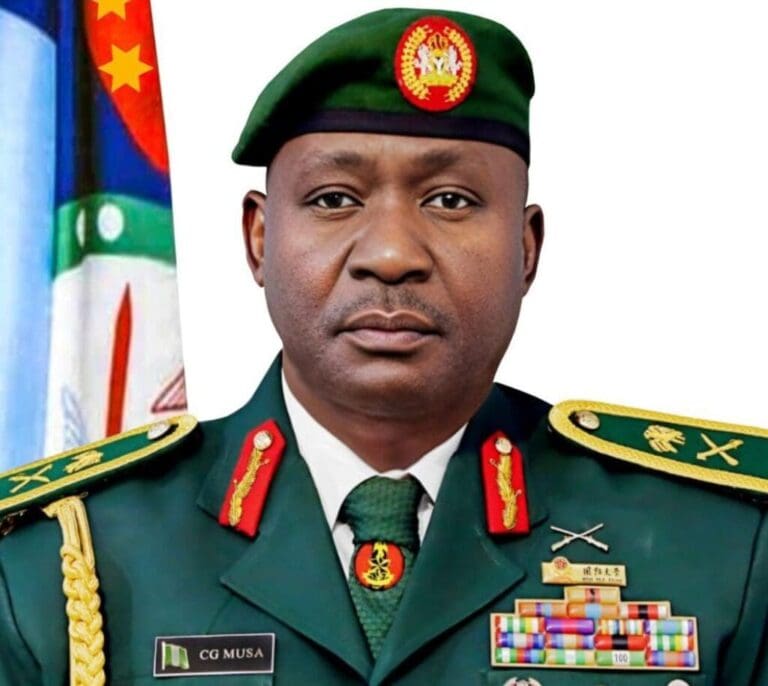Nigeria’s Chief of Defence Staff, General Christopher Musa, has reaffirmed the commitment of the military to maintaining close relations with Niger despite regional tensions.
General Musa stressed the importance of bilateral cooperation between the two countries, particularly in the fight against terrorism, and firmly rejected accusations of collusion with France to destabilize Niger.
In an interview with Al Jazeera, General Musa clarified the nature of Nigeria-Niger relations following the recent coup-related tensions.
“People thought it was Nigeria versus Niger. Nigeria has no problem with Niger. We share a 1,500-km border,” General Musa said, highlighting the deep ties between the two countries.
“Three to seven Nigerian states have cultural and religious affinities with them. So we cannot afford to be enemies,” he stressed.
Regarding counter-terrorism efforts, the Nigerian military chief stressed the mutual commitment of the two countries, noting that “they are very committed because they all know that we have to do it; together, we are stronger. If you are alone, you will be exposed.”
General Musa also mentioned his recent visit to Niger and his meeting with his Nigerien counterpart, stressing the importance of “continuing to work together.”
Despite Niger’s withdrawal from ECOWAS, along with Mali and Burkina, he reiterated the need to maintain bilateral agreements between the two countries, particularly within the framework of the Multinational Joint Task Force, which he considered “a success” among all regional operations.
In late December, the Nigerian government strongly denied accusations by Niger’s President, General Abdourahamane Tiani, of alleged collusion with France to destabilize his country.
In a statement from the Nigerian Minister of Information received by APA, Abuja “firmly” rejected the claims made by the Nigerien leader in an interview with Télé Sahel on December 25, calling them “baseless” and “imaginary.”
The Nigerien president had accused Nigeria of hosting a terrorist base in Lakurawa, Sokoto State, in collaboration with France.
The Nigerian government, for its part, highlighted its counterterrorism efforts, citing the recent “Operation Forest Sanity III,” specifically directed against the Lakurawa threat.
“Nigeria has never entered into an overt or covert alliance with France – or any other country – to sponsor terrorist attacks or destabilize the Republic of Niger,” the statement insisted, recalling the country’s historical commitment to its sovereignty and its refusal to host foreign military bases. The minister reaffirmed his country’s support
for enhanced regional cooperation, citing joint projects such as the Trans-Saharan Gas Pipeline and the Kano-Maradi rail link. He called on Niger to prioritise “constructive dialogue” rather than spreading “baseless accusations”.
In supporting Abuja against what it called “baseless accusations”, the ECOWAS Commission, in a separate statement, highlighted the “recent successes” of the Nigerian-led Multinational Joint Task Force (MNJTF) as evidence of the country’s commitment to regional peace.
The regional organisation “rejects any suggestion that such a generous and magnanimous country would become a sponsor of terrorism” and calls on all states in the region to “refrain from making accusations unsupported by evidence”.
AC/fss/gik/APA


